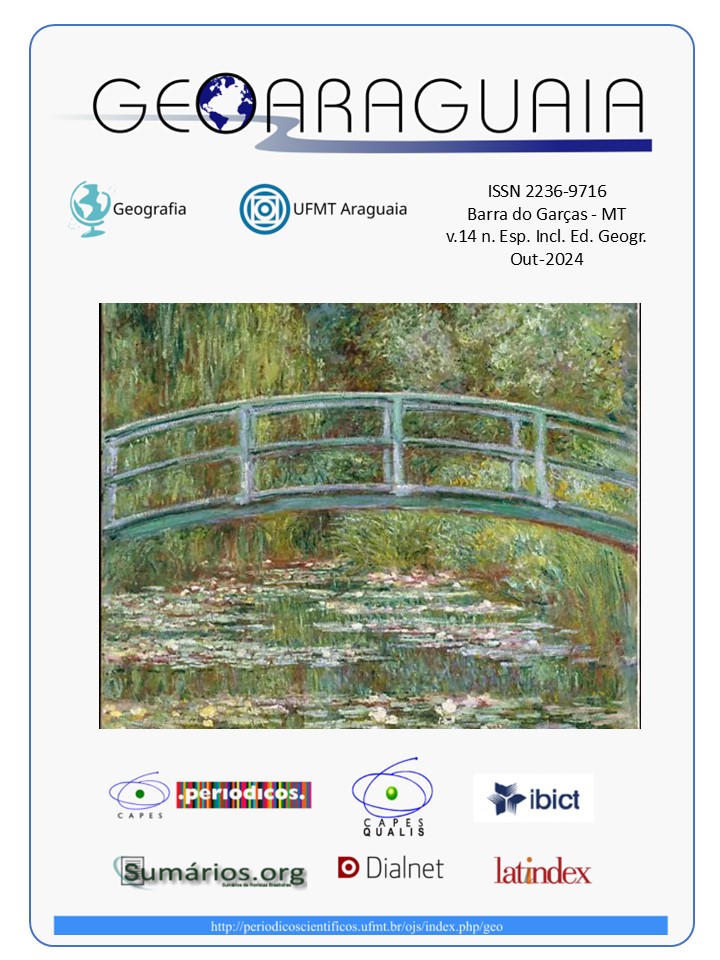Inclusion in Geographic education: theories and practices
Keywords:
Educação inclusiva, Ensino de geografia, Políticas educacionais, Práticas pedagógicasAbstract
This research analyzes inclusive educational theories and practices applied to teaching geography to students with disabilities in basic education. The overall objective is to investigate the role of these approaches in promoting inclusive geographic education. Qualitative methodology was used, through documentary analysis, interviews and observations in schools in a rural location. The results highlight gaps between inclusion policies formalized in schools and their implementation in pedagogical practices. Although there are generic guidelines, there is a lack of concrete developments in Geography teaching regarding curricular and didactic adaptations necessary for the participation of students with disabilities. The school manager's responses and classroom observation denote the teachers' lack of familiarity with inclusive principles such as the Universal Learning Design. A lack of training, adapted resources and pedagogical support is identified to adapt practices to the diversity of characteristics and educational needs of students. This distance between what is prescribed and what is practiced signals the phenomenon of enactment, a gap between standardized policies and their development by educators in their daily professional lives. Overcoming this gap requires investments in training, accessible teaching materials and technical-pedagogical support, fundamental to bringing Geography teaching closer to an inclusive perspective. It is concluded that, despite the existence of policies, their practical application is still insufficient. Therefore, concrete institutional support is necessary so that teachers know how to adapt their practices in order to reduce barriers and expand geographic learning opportunities for all students.
Downloads
Published
How to Cite
Issue
Section
License
A Revista Geoaraguaia poderá solicitar alterações de ordem normativa, ortográfica e gramatical, com vistas a manter o padrão culto da língua. Se necessário, alguns ajustes normativos podem ser feitos pela revista, porém respeitando o estilo dos autores.
As provas finais não serão enviadas aos autores.
As opiniões emitidas pelos autores dos artigos são de sua exclusiva responsabilidade.





 A revista
A revista